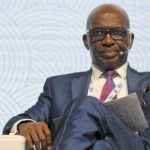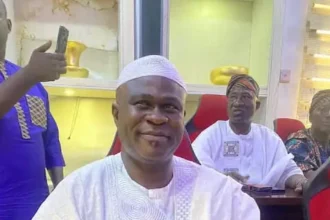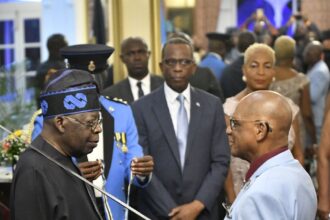...To get all news updates, Join our WhatsApp Group (Click Here)
Also Join our WhatsApp Channel (Click Here)
By: Sunday Adebayo
Two decades since her crowning as the Most Beautiful Girl in Nigeria, Anita Uwagbale has transcended the conventional expectations of beauty queens to become a multifaceted icon of resilience, innovation, and empowerment.
Her journey from the glitz and glamour of pageantry to the challenging world of entrepreneurship is a narrative of continuous self-reinvention and determination.
Anita Queen Uwagbale, a name synonymous with beauty and business acumen, is a testament to the enduring allure and versatility of a true queen. Born in Edo and raised in Lagos, Anita’s journey to stardom began at Madonna University, Port Harcourt, where she studied Accountancy.
Her life took a glamorous turn in 2004 when she was crowned the Most Beautiful Girl in Nigeria (MBGN), a title that catapulted her into the limelight and set her on a path of remarkable achievements.
As MBGN, Anita, a graduate of University of Phoenix represented Nigeria on global stages, including Miss Universe and Miss World. Her stunning performance at Miss World 2004 saw her placing among the top 15 semi-finalists and being named the African Continental Queen of Beauty.
Her reign was not just about beauty; she used her platform to advocate for environmental pollution awareness, demonstrating her commitment to societal issues. Beyond the crown, Anita’s life has been a rollercoaster of highs and lows. She married businessman Tom Iseghohi in 2008, and together they welcomed three children.

However, after a decade of marriage, the couple parted ways. Despite the personal challenges, Anita’s entrepreneurial spirit never wavered.
Beyond Beauty: Anita’s Entrepreneurial Spirit
Anita’s foray into the business world was driven by a keen sense of opportunity and a desire to address a gap in the market. The Baby Store was born out of her personal struggle to find quality baby products in Nigeria. This venture was not just a business move; it was a solution to a widespread challenge faced by many Nigerian parents. Her entrepreneurial journey did not stop there. With a vision to diversify, Anita launched a printing company and an exclusive luxury hamper company, showcasing her ability to identify and capitalize on varied business opportunities.
Navigating Challenges: The Evolution of The Baby Store
Anita’s business acumen was truly tested with The Baby Store. Operating a physical store in Victoria Island came with its own set of challenges, from exorbitant service charges to logistical issues. Instead of succumbing to these obstacles, Anita who doubles as a wight loss coach embraced the digital revolution. She transitioned her business online, leveraging platforms like Jumia and Konga to reach a wider audience. This strategic pivot not only sustained the business but also allowed it to thrive in a rapidly changing retail landscape.
The relaunch of The Baby Store marks a new chapter in Anita’s entrepreneurial journey. With a focus on educational toys, the store aims to cater to the holistic development of children, blending fun with learning. This shift reflects Anita’s deep understanding of her customers’ evolving needs and her commitment to providing value beyond just products.
A Role Model for Aspiring Entrepreneurs
Anita’s journey is a powerful reminder that success is not a destination but a continuous journey of growth and adaptation. She stands as a role model for aspiring entrepreneurs, especially women, demonstrating that with resilience, innovation, and a clear vision, it is possible to overcome challenges and achieve lasting success.
As Anita Uwagbale celebrates the 20th anniversary of her MBGN title, her legacy extends far beyond her beauty queen days. She has proven that true beauty lies in the courage to pursue one’s dreams, the resilience to weather life’s storms, and the innovative spirit to continually reinvent oneself. Her story is a testament to the fact that with determination and a willingness to evolve, one can not only stay relevant but also make a significant impact in the world.
You can get every of our news as soon as they drop on WhatsApp ...To get all news updates, Join our WhatsApp Group (Click Here)
Also Join our WhatsApp Channel (Click Here)











